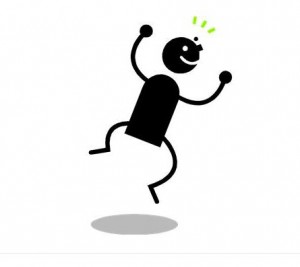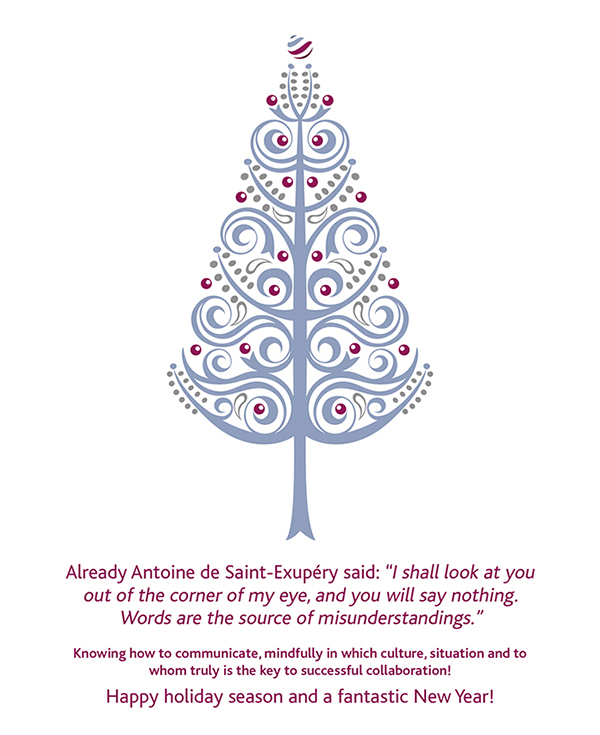Category: Mindfulness
A few words you might want to reflect upon
As I truly had a re-energizing and stimulating weekend in my silent retreat in the mountains, let me share this quote with you, which I find very inspirational:
“When I was 5 years old, my mother always told me that happiness was the key to life. When I went to school, they asked me what I wanted to be when I grew up. I wrote down ‘happy’. They told me I didn’t understand the assignment, and I told them they didn’t understand life.” John Lennon (via goodreads.com)
Have a great week and thanks for reading!
Jenny
Challenging Myself: A Mindfulness Retreat
 Tomorrow, I will be going on a three day silent retreat; it will be the first time that I will be staying a couple of days. So far, I have ‘only’ experienced one day at a time. The most intriguing thing for me is not the fact that there will be no speaking; nor is it the fact that I will be alone with myself, looking deeply into what lies beyond the conscious mind. No, it is that I will be sharing my room with somebody I don’t know and I won’t get to know as we don’t speak.
Tomorrow, I will be going on a three day silent retreat; it will be the first time that I will be staying a couple of days. So far, I have ‘only’ experienced one day at a time. The most intriguing thing for me is not the fact that there will be no speaking; nor is it the fact that I will be alone with myself, looking deeply into what lies beyond the conscious mind. No, it is that I will be sharing my room with somebody I don’t know and I won’t get to know as we don’t speak.
Usually I like company and as a student I have always enjoyed these moments of sharing a room or an apartment with people. This time though, it will be different as there will be no ‘getting to know each other’. It will simply be a matter of non-judging, and adapting an appreciative attitude towards the other person for a couple of days. Well, this might be part of the experience but it still sounds a little ‘frightening’ to me!
I am almost certain that I will encounter some reluctance to stay focused and it will be interesting to see how I will deal with these moments of ambiguity and uncertainty. I am sure though that the experience will make me grow and allow me to re-charge my batteries at the end of this year.
2013 has indeed been full of action and change. The road ahead is not yet 100% clear but the mist is starting to lift, like clouds hanging on the mountains and finally disappearing. I wonder what three days of silence will bring… definitely some rest and centeredness!
“The present moment is filled with joy and happiness. If you are attentive, you will see it.” Thích Nhất Hạnh
Take-aways from D. Goleman’s presentation in Lausanne
Yesterday I had the chance to attend Daniel Goleman’s presentation at the IMD in Lausanne. The room was full and people were attentively listening to what was entitled: “How can Global Leaders focus for High Performance”. I had never seen Goleman live before and I must say that it was a very interesting and enriching conference!
Firstly, did you know for example that when somebody says something that hurts you or when you simply receive an email that annoys you, your full bodily reaction is activated (stress hormones being released, muscles ready to run etc.) exactly as if you were fleeing from a predator like in ancient times? The simple thought of a negative event can in fact already trigger that reaction…
Secondly, were you aware that there are three different kinds of empathy[1]?
- Cognitive Empathy (understanding the mental models of people)
- Emotional Empathy (coming from the mirror neurons, feeling physically what another person is feeling)
- Empathic Concern (you not only feel with the person and understand her/him but you are also inclined to help)
Thirdly, also interesting, were Goleman’s explanations around what differentiates a top leader from a “mainstream” one. Not astonishingly, three areas of focus[2] are needed:
- Inner Focus (understand, manage and lead yourself)
- Focus on other people (i.e. empathy, to be able to understand what other people are thinking, feeling, how to communicate with others etc.)
- Focus on other systems (the surrounding parameters, the forces that impact an organization)
Once all three are combined, leaders excel in their tasks and are also perceived by peers and employees to be thriving.
And finally, to my surprise, Goleman even brought a simple mindfulness exercise to the audience, who sat in silence for a while, listening to his voice giving the instructions. What an inspiring moment!
Mindfulness according to him is “fitness for the brain”, training attention and focus. The more it is done, the more the brain changes the way it operates and reacts to stimuli and the better one will also be able to “listen” to the info coming from the gut (the somatic markers).
Bringing mindfulness into the workplace using different formats and tools to deal with difference, furthering not only internal communications, innovation and creativity but also self-awareness and efficiency in teams is what I am focusing on as a consultant/coach/trainer. If you are interested in learning more, I would be very pleased to hear from you!
And to end with a really nice old eskimo proverb that my mindfulness teacher brought to my attention yesterday and that I found back here:
Yesterday is ashes; tomorrow is wood. Only today does the fire burn brightly
Mindful Leadership and the influence of emotions on trust
 In preparation of D. Goleman’s presence and presentation in Lausanne at the IMD later this week, I was reading some very interesting articles/research about emotions and their influence on trust.
In preparation of D. Goleman’s presence and presentation in Lausanne at the IMD later this week, I was reading some very interesting articles/research about emotions and their influence on trust.
As more and more leadership publications and organizational excellence discussions talk about emotions and how important these are for successful self-management, people-management and organizational functioning and well-being (for the company as a whole as well as for the people in it), I find their influence on trust highly important. Trust is indeed necessary for effective teamwork, functioning partnerships, management, social life etc. It really is the main ‘ingredient’ for making things happen, able to reduce the complexity that we are confronted at all times so that we can be together, work together, deal together in business matters and other things. Once lost, it is very difficult to re-build trust in whatever context.
Thanks to research conducted in the field of psychology and neuroscience we now slowly begin to better understand and value how our ‘brains’[1] function and why it is so important to listen to both of them. The idea, that certain emotions can influence trust is hence extremely interesting.
So far, I only knew of research identifying links between affective states (moods and emotions) and unrelated judgments[2] and not how specific emotions influence subsequent judgments. “Unlike moods, emotional states are typically shorter in duration (…)”[3] and they are more complex than moods. In their research, Jennifer Dunn and Maurice Schweitzer, found out the following correlation:
“Happiness and gratitude—emotions with positive valence—increase trust, and anger—an emotion with negative valence—decreases trust. Specifically, (…) emotions characterized by other-person control (anger and gratitude) and weak control appraisals (happiness) influence trust significantly more than emotions characterized by personal control (pride and guilt) or situational control (sadness). (…) Emotions do not influence trust when individuals are aware of the source of their emotions or when individuals are very familiar with the trustee.”
Applied to leadership, these findings are of great importance. As we have seen in one of my previous posts, certain mental qualities or attitudes, “(…) provide a rich soil in which the seeds of mindfulness can flourish: [4]
- Patience
- ‘Letting Go’
- Non-Judging
- Trust
- Generosity
To summarize: Under certain conditions, emotions such as happiness and gratitude thus increase trust whereas a key attitude for being able to plant the ‘seeds’ of mindfulness is also trust. If you thought that mindful leadership is out of your reach, well here’s a place to start!
[1] Compare with: “Did you know that you actually have two brains?”
[2] See Joseph P. Forgas for example
[3] Jennifer R. Dunn and Maurice E. Schweitzer: “Feeling and Believing: The Influence of Emotion on Trust”, page 737
[4] Jon Kabat-Zinn: “Wherever you go, there you are”, New York 1994, p. 3.
About Mindlessness and Mindfulness
 When reading about mindfulness in the workplace and more “mindful” organizations, have you ever thought about what it meant if somebody is “mindless”?
When reading about mindfulness in the workplace and more “mindful” organizations, have you ever thought about what it meant if somebody is “mindless”?
In her article “A call for mindful leadership” on the HBR Blog Network, Ellen Langer addresses this interesting question. She rightly says:
“When leaders keep everyone in their place with the illusion of knowability and possession of this privileged knowledge[1] the benefit to them is that we ‘obey’ and leaders feel superior. The cost is that they create lemmings. Their mindlessness promotes our own mindlessness which costs us our well being and health. Net result, the leader, the led, and the company all lose.”
I don’t know about you but I have seen many “mindless” people throughout my career. Many are scared of change, scared to look inside themselves and listen to their gut feeling, scared to loose their jobs, in sum: scared of uncertainty and not-knowing what will happen next.
Mindfulness in turn, allows you to live day by day and to deal with threats/take up opportunities as they arise; you are confident and positive as you know yourself and your abilities. As Margaret Wheatley puts it:
“Leaders are so afraid of paradox, so afraid of uncertainty. It takes a lot of bravery even to consider that uncertainty is not a threat, that in fact it’s creative and powerful. “
Or in the words of Ellen Langer:
“By learning how to exploit the power of uncertainty maybe all of us will wake up.”
Are you ready to take up the challenge?
Podcast: The Power of Mindful e-mailing
I hope you are having a wonderful weekend! Here is my second podcast in the Mindfulness Series, entitled “The Power of Mindful e-mailing“.
 Podcasts are a very practical way to take me with you when you are at work, at home or on the road. Remember: You are the Architect of your Life! Everybody can start being mindful: TODAY!
Podcasts are a very practical way to take me with you when you are at work, at home or on the road. Remember: You are the Architect of your Life! Everybody can start being mindful: TODAY!
Enjoy listening,
Jenny
Did you know that you actually have two brains?
 On my way to Tallinn where I am attending the 2013 SIETAR Congress, I read some interesting articles related to intercultural research, mindfulness and leadership. It always strikes me, how much everything is interrelated!
On my way to Tallinn where I am attending the 2013 SIETAR Congress, I read some interesting articles related to intercultural research, mindfulness and leadership. It always strikes me, how much everything is interrelated!
For example I read that leadership is not about controlling others and the environment we live/work in but to accept and treat others as ‘human beings’ who as such are capable of compassion, creativity and generosity. All it needs is somebody to bring out these qualities and skills, hence to work with collective emotional intelligence rather than with individual intellects only.
Whereas this would appear obvious to a mindful leader, another article expanding these thoughts by Amnon Buchbinder on Philip Shepherd’s ‘Out of our heads’ retained my attention. The latter explores the implications of the fact that there are two brains (yes!) within us: the cranial one which we know and the so-called ‘enteric brain’ located in our bellies (in the gut).
From my understanding of neuroscience, I know that there is a web of neurons in the belly allowing us to listen to the outside world through our bodies; what I did not know though, was how we as humans in our Western culture historically ended up putting so much emphasis on our ‘cranial brain’ and the intellect thus moving our ‘thinking’ self to the head.
We live in a ‘head-centered’ society and of course this has multiple consequences in our lives, on our organisational cultures, our education etc.etc. Interestingly, the idea of an integrated mind and body (i.e. the harmony we need to achieve in order to align our ‘two brains’), “the embodied feeling and lived experience” (Bennett, Castiglioni) also lies at the center of intercultural adaptation: the intuitive feeling of a culture is as important as cultural awareness and knowledge of a foreign culture to be able to effectively deal with difference.
Food for thought! During the next days here in Tallinn, I will certainly be learning many more new aspects of intercultural research, training and education. I can only say that listening to my gut feeling has brought me here and the practice of mindfulness is certainly one way of being in touch with myself again.
If you haven’t done so already, please follow my blog to learn more about Mindful Leadership & Intercultural Communications. I will be offering some free 20 minutes coaching sessions very soon for those of you who don’t really know what it is, want to try it out or simply are in need of coaching. Sign up here!




